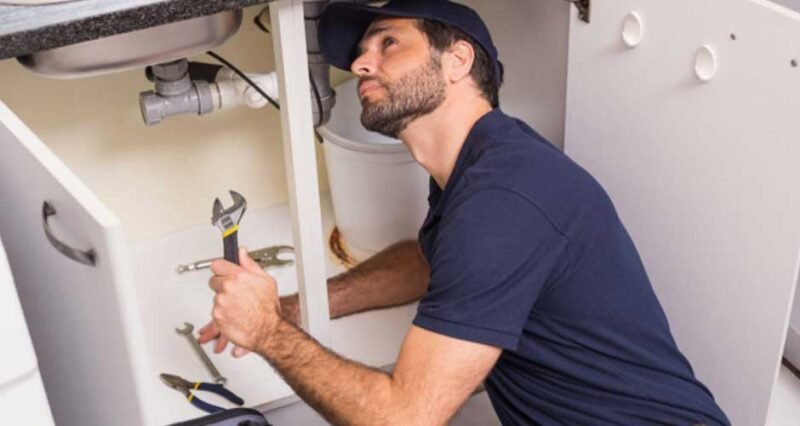
As a plumbing business owner, you understand that a steady stream of leads and customers is essential for success. However, in today’s digital age, simply having a website and online presence is not enough to attract potential customers.
SEO (search engine optimization) is essential for every online marketing approach. SEO increases the visibility of your website on search engine results pages (SERP), making it easier for potential clients to find your business. Here are 15 plumbing SEO strategies to assist you in getting more leads and consumers to your website.
1. Conduct Keyword Research
Keyword research is the first stage in any SEO strategy. You need to understand potential customers’ search terms when looking for online plumbing services, like “Forest Hill plumber.” This data may help you adjust your website’s content, titles, and meta descriptions to fit your target audience’s search intent.
- Utilize tools for keyword research like Google’s Keyword Planner, Ahrefs, and SEMrush.
- Use long-tail keywords, as they are more specialized and have lower competition.
2. Optimize Your Website Content
Creating quality content is essential for SEO. Once you have identified the right keywords, it’s time to optimize your website content. This includes adding keywords to page titles, headings, and body copy.
- Create informative, engaging, and relevant website content.
- Avoid stuffing the content with excessive keywords.
3. Improve Website Speed
Website speed is an important aspect of SEO. Slow-loading websites can degrade the user experience, resulting in a high bounce rate and bad search engine ranks.
- Compress images and minify CSS and JavaScript files to improve website speed.
- Reduce load times by utilizing a content delivery network (CDN).
- To give a great user experience, optimize your website for mobile devices.
4. Use Title Tags and Meta Descriptions
Title tags and meta descriptions are HTML components that provide information about a web page. These elements appear in SERP and can influence a user’s decision to click through to your website.
- Use clear and informative title tags and meta descriptions to describe your website content.
- Have your primary or target keywords in the title tags and meta descriptions.
- Don’t use duplicate title tags and meta descriptions.
5. Get Backlinks
These backlinks are links that point to your website from another website. They are important in SEO since they tell search engines that your website is reliable and relevant. It is noteworthy that SEO speakers consistently emphasize the crucial role of backlinks in boosting a website’s search engine ranking, underscoring their significance in the realm of digital marketing.
- Create high-quality content that will entice other websites to connect to you.
- Participate in online forums and guest blogs on other relevant websites.
- Keep an eye on your backlinks and remove any low-quality or spammy links.
6. Use Google My Business (GMB)
GMB is an entirely free application or tool for managing the web presence of your company across Google, including Search and Maps. Check that your GMB profile is comprehensive, correct, and up to date, including your company hours, contact information, and images.
- Establish a Google My Business account for your plumbing company.
- Encourage consumers to post reviews on your Google My Business profile.
7. Use Local Keywords
Local SEO is essential for plumbing businesses that serve a specific geographic area, such as “plumber in Caledon.” This can help you attract potential customers searching for plumbing services in your area.
- Use local keywords, title tags, and meta descriptions in your website content.
- Include your business location and service area on your website.
- Use Google Maps and other local directories to improve your local SEO.
8. Optimize Your Website for Mobile Devices
Nowadays, mobile devices account for over 50% of internet traffic. Optimizing your website for mobile devices is essential to provide a positive user experience.
- Use responsive design to optimize your website for mobile devices.
- Optimize images and reduce load times for mobile users.
- Make sure your website is simple to use on all mobile devices.
9. Use Social Media
Social media is an excellent tool for promoting your plumbing business and attracting potential customers. Ensure you have a presence on relevant social media platforms and regularly post informative and engaging content.
- Create a social media presence for your plumbing business.
- Engage with your clients on social media to establish relationships.
10. Monitor Your Online Reputation
Online reviews can significantly impact a potential customer’s decision to choose your business. Make sure you monitor your online reputation regularly. If needed, you can also explore options to boost your social media presence, such as investing in services to buy Instagram followers & likes, which can help increase visibility and credibility for your plumbing business. By utilizing social media effectively, you can showcase your expertise, connect with your audience, and ultimately grow your plumbing business.
- Respond to any unfavourable reviews or comments as swiftly as possible and professionally.
- Encourage satisfied clients to post good feedback on your website and social media pages.
11. Use Schema Markup
Schema markup is a data structure format that helps search engines interpret the content on your website.
- Add review ratings, opening hours, and event information to your website.
- Improve your click-through rate and search engine rankings with rich snippets.
12. Use Analytics to Track Your Progress

Google Analytics is a free tool that can help you track your website’s traffic, user behaviour, and other important metrics.
- Discover locations where your SEO approach might be improved.
- Use analytics to track which keywords drive the most traffic to your website.
13. Utilize Video Marketing
Video marketing is a highly effective way to attract potential customers and improve search engine rankings.
- Create informative and engaging videos about your plumbing services.
- Post videos on your website and social media profiles.
- Build trust with potential consumers by using video marketing.
14. Use Pay-Per-Click Advertising
These ads are displayed on search engines, social media platforms, and other websites. When combined with other SEO strategies, PPC advertising may increase visitors to your website and produce leads.
- Create targeted ads based on your keywords and audience.
- Keep an eye on your advertising initiatives and change your plan as appropriate.
15. Invest in Local Listings
Local listings, such as directories and business listings, are essential to local SEO. Ensure your business is listed on relevant local directories and listings and that your business information is accurate and up-to-date.
- Create local listings on websites like Yelp, Bing Places, and Yellow Pages.
- Provide the name, address, phone number, and web address of your company.
- Motivate satisfied clients to provide feedback or reviews on your local listings.
While there are many SEO strategies that you can implement, the key is to focus on providing value to your audience and building a strong reputation online. By doing so, you can establish trust with potential customers, stand out from the competition, and position your plumbing business for success both now and in the future.
However, if you feel overwhelmed by the complexity of SEO or don’t have the time or resources to implement these strategies yourself, don’t worry. Many SEO companies, such as the Markham SEO company, can help you improve your online presence and drive more traffic to your website. By working with the right SEO company, you can save time and resources while still achieving desired results.

